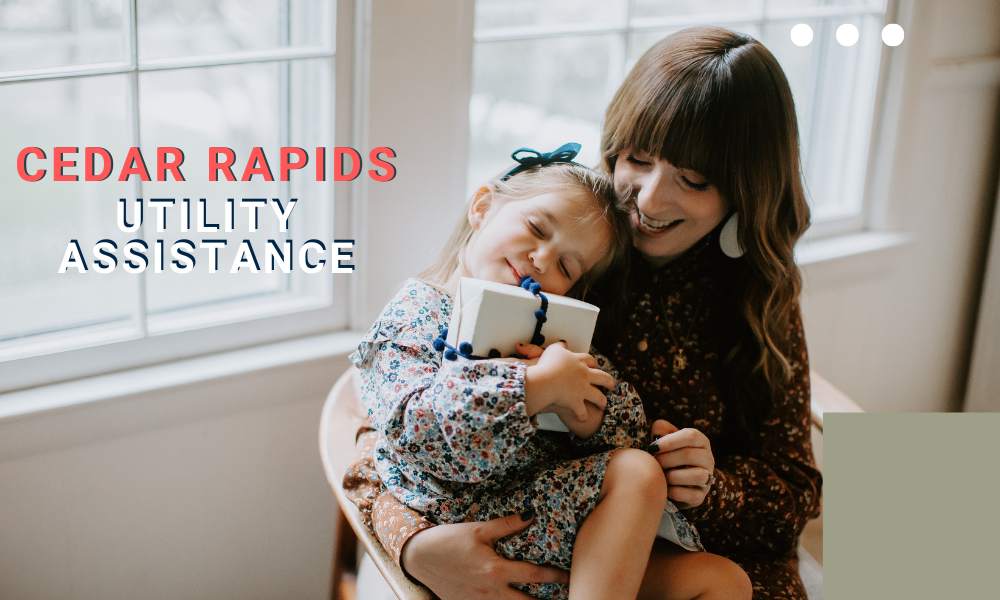The effects of COVID-19 and inflation have left many low- to middle-income Cedar Rapids residents struggling to pay their water, electric, sewer, and other utility bills. Therefore, we’ve put together a comprehensive list of utility bill assistance programs in the Cedar Rapids area to help those in need.
Cedar Rapids
Cedar Rapids is Iowa’s second-largest city, located in the eastern part of the state near the Cedar River. It was established in 1841 and named for the river’s currents and local red cedar trees. The city has a strong history in agriculture and industry, with companies like Sinclair Meatpacking and Quaker Oats. Today, Cedar Rapids is a diverse economic center with a lively arts scene and the “Creative Corridor” linking it to Iowa City. It hosts several higher education institutions, including Coe College, Mount Mercy University, and Kirkwood Community College.
Cedar Rapids boasts a rich cultural landscape, featuring numerous museums, galleries, and performance spaces. This includes the Cedar Rapids Museum of Art, which houses the world’s largest collection of works by famed Iowa-born artist Grant Wood. The city is also home to the National Czech and Slovak Museum and Library, a testament to the strong Czech and Slovak immigrant presence in the area. The Paramount Theatre, a beautifully restored historic venue, hosts a variety of performances, ranging from Broadway productions to concerts and comedy shows. In addition, Cedar Rapids is known for its family-friendly attractions, such as the Indian Creek Nature Center, which offers environmental education and outdoor recreational activities, and the Brucemore, a magnificent 19th-century estate and cultural center that hosts various community events throughout the year.
Financial assistance programs in Cedar Rapids and Linn County
- Linn County General Assistance: Linn County residents who need help with energy bills, medical or dental care, or other basic requirements can seek general assistance. For instance, qualified candidates receive a one-time payment based on family size. For more information, call 319-892-5850.
- Hawkeye Area Community Action Program: Helps low-income families in Cedar Rapids, Iowa City, and other nearby cities pay their energy bills by giving them money. In other words, the program is based on income guidelines and is available for both homeowners and renters. Therefore, to apply, contact your local community action agency. Meanwhile, for application information, call 319-739-0100.
- Embrace Iowa: Embrace Iowa provides financial assistance to low-income families in Cedar Rapids and other Iowa counties for help with heating, air conditioning, and electric bills. Therefore, qualified applicants may receive a one-time payment to cover the uncollected debt. To apply, call 515-246-6643.
Community Resources in Linn County and Beyond
- Weatherization Program: The Weatherization Program helps low-income families in Cedar Rapids and neighboring areas save money on their energy bills by making their homes more energy efficient. To apply, contact your local community action agency. For more information, call 319-739-0100.
- Iowa Legal Aid: Low-income people in Cedar Rapids, Iowa City, and other counties in the state can get free legal help from Iowa Legal Aid. In addition, this support includes assistance with utility bills and other legal concerns. Therefore, to find out if you qualify, call 1-800-532-1275.
Additional Resources for Neighboring Counties
For utility bill assistance programs in neighboring counties, contact your local community action agency or visit their website. Benton County, Jones County, Washington County, and others are among them. In addition, there are phone numbers for various neighboring counties:
- Benton County: 319-653-7275
- Johnson County: 319-739-0100
- Jones County: 319-472-4761
- Washington County: 563-556-5130
- Dubuque County: 319-337-5765
- Jackson County: 319-462-4343
Therefore, don’t forget to talk to your utility companies directly. Many of them have payment plans and customer service programs for people who are having trouble paying their bills.

